ulfikar Ali Bhutto, who was one of the most consequential political figures of Pakistan, shifted the focus of the country from clergy to the economy. He gave Pakistan its constitution and confidence as a nation. He was hanged on April 4, 1979.
Bhutto: An aristocrat and a populist.
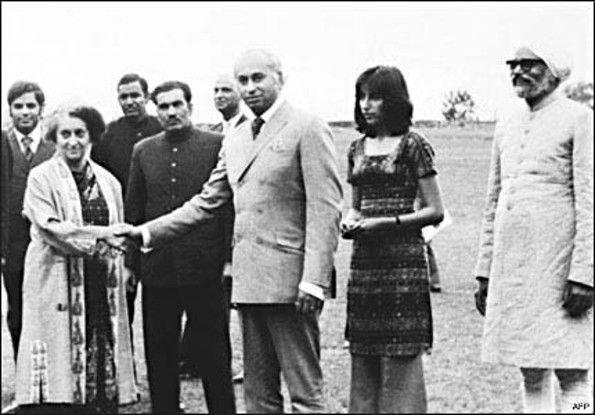
The Pakistani President Zulfikar Ali Bhutto with Prime Minister Indira Gandhi, in Simla. His daughter Benazir Bhutto and India’s Foreign Minister Swaran Singh look on.
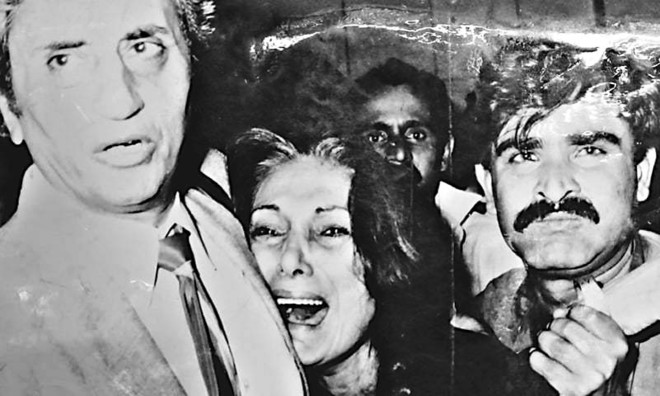
Nusrat Bhutto after her husband’s execution.
IT was on April 4, 1979, that Zulfikar Ali Bhutto was hanged in Rawalpindi District Jail at 2 am by hangman Tara Masih. The Jail Superintendent Yar Mohammed, then Deputy Commissioner of Rawalpindi Saeed Mehdi, CSP the then SSP Rawalpindi Jehanzeb Burki, PSP and SP (Special Branch) Raja Mehmood, along with the C.O. of 17th Punjab Regiment Lt Col Rafi Alam were were witness to his death.When his body was buried at Garhi Khuda Baksh in Larkana District of Sindh (Pakistan), it marked the end of the life of a popular political leader of Pakistan. Leadership is generally thought to be a desirable trait, except when a leader becomes too conscious of his or her position and refuses to acknowledge any rank and file, but imposes and implements his own philosophies. Under this category, however, there happen to be such leaders who built states and empires, and have marvellous achievements to their credit. Leadership in fascist ideologies may take on a special role, but in normal terms it is seen as an embodiment of the people and the nation. Bhutto was one leader who was hugely liked by people but vaultingly dictatorial in exercise of power. Born on January 5, 1928, to Sir Shah Nawaz Bhutto and Lakhi Bai. His family owned 1. 21 lakh acres of land which was spread over 39 villages in Larkana, District of Sindh. His mother, Lakhi Bai, (his father’s third wife) was a Hindu from Pune. Bhutto was educated in Bombay’s Cathedral High School, University of California at Berkeley and later Christ Church College, Cambridge. He was called to the Bar at Lincoln’s Inn. He returned to Pakistan in November, 1953 and was taken into Ayub Khan’s cabinet in 1958 at the age of 30. He held the portfolios of National Resources, Fuel and Power and Kashmir Affairs. Later on, he also became the Foreign Minister. He was opposed to the Tashkent agreement with India and resigned from the Cabinet in January, 1966 as Foreign Minister. He mobilised students, youth, labour and farmers against Ayub Khan’s regime and started a country-wide agitation. After the defeat and surrender of the Pakistan army on December 16, 1971 at Dacca he took charge as the Chief Martial Law Administrator on December 20, 1971. He had supported the Pakistan army’s crackdown in Bangladesh (then East Pakistan) with gleeful sadism. Bhutto was handsome and dapper, with Rajput lineage. He had a glad eye and responded to overtures from beautiful women. Bhutto came to Shimla for negotiations on June 28, 1972 and signed the Simla Agreement with Indira Gandhi. DP Dhar recalled that he was at his diplomatic best and recited many Urdu couplets during the talks with Indira Gandhi, including, “Dushmani shauq se karo magar yeh gunjaiysh rahe, phir kabhi dost ban jayain toh sharminda na hon.” (Be enemies by all means but never take it to a level, where in case you become friends again, you feel ashamed.)He gave much thought to military reforms and had read on how Hitler and Mussolini had dealt with rebellious generals as well as how Napoleon had accomplished all that he did. He had closely seen Iskander Mirza, Ayub and Yahya and knew the “mind” of the Pakistan military and its temptations and blindspots, its singular strengths and weaknesses. He ruled like a medieval monarch and was imperious, rather arrogant, in his conduct. He was idiosyncratic and had a behaviour disorder. He would humiliate and insult a colleague or a general in public. Bhutto began Pakistan’s Nuclear Programme with zeal. He held the World Islamic summit in June, 1974 at Lahore during the post-oil crisis phase. Bhutto has a number of historic achievements to his credit. Bhutto’s foundation of the Pakistan Peoples Party (PPP) was a setback for the reactionary forces in a country long dominated by the Right. The slogan of “Food, Shelter and Clothing” shifted the focus of Pakistan politics from theological to economic issues. This focus has never shifted back. Bhutto nationalised the economy, which was yet another blow to the capitalist West. During his tenure, there was a massive transfer of resources towards the dominant rural economy by setting higher prices for agricultural products. The Constitution of 1973, passed unanimously, is yet another lasting legacy of Bhutto. He established the Pakistan Steel Mills, Heavy Mechanical Complex Taxila, Port Qasim Authority, Quaid-i-Azam University, Allama Iqbal Open University, Karachi Nuclear Power Plant — thus, fortifying the prosperity and integrity. Using his expeience as a Foreign Minister, Bhutto cemented Pakistan’s relations with Afro-Asian and Islamic countries. It was in September 1976 that the then US Secretary of State Dr. Henry Kissinger warned him of grave consequences if he ever put his nuclear weapons programme on track. “You would be a horrible example for others to see,” Kissinger had threatened. Bhutto held the 1977 elections which were allegedly rigged, leading to a nation-wide agitation by all opposition parties under the banner of the Pakistan National Alliance. More than 300 persons were killed in police and army firings and on July 5, 1977, General Zia-ul-Haq conducted Operation “Fair Play” and imposed martial law in Pakistan. General Zia had come from an Arain Muslim family (Kamboj and Sainis converted to Islam) of Jalandhar and his father Akbar Ali was a head clerk in the Ministry of Defence Services in British India. His frugal background notwithstanding, Zia had graduated in History (Hons) in 1944 from St. Stephen’s College, Delhi. He was commissioned into the 2nd cavalry in June, 1945.Bhutto was tried in a sham, nay charade, trial in the high court and the supreme court of Pakistan, leading to his death by hanging. Bhutto would be assessed as a third world leader who wanted to do a lot of things for his poor country but wittingly or rather advertently tread on a path which annoyed super powers and regional giants, leading to his ultimate removal from power and the world. Bhutto used to say that a leader must know the aspirations of the people and on the basis of those aspirations give the people a bold direction. A deception in this contract is most fatal. However, legacy of ZA Bhutto still haunts and irritates Pakistan’s powerful establishment because he repeatedly said the more the dominance of the army, the shorter the life of Pakistan. The writer is an IAS officer of the Punjab Cadre.
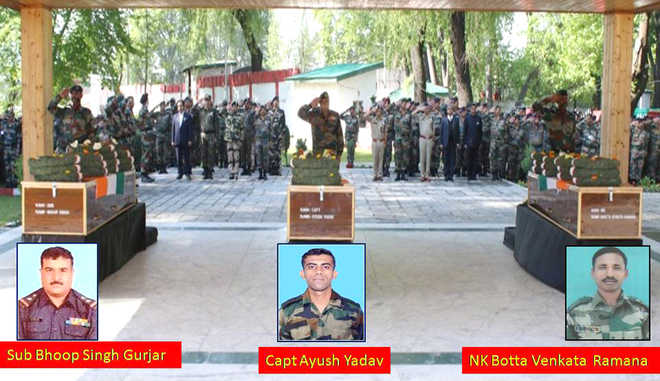












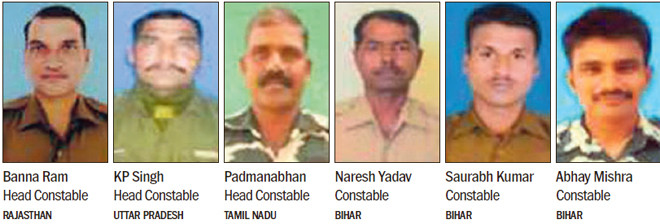
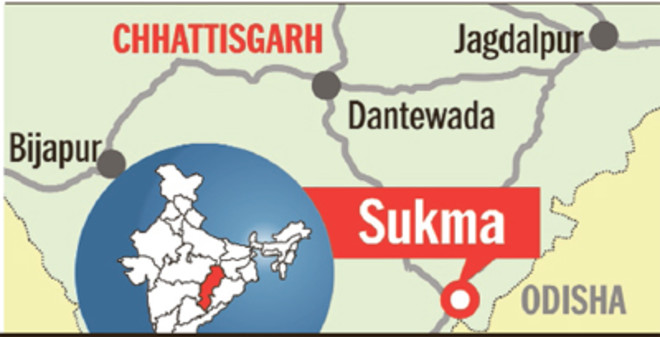
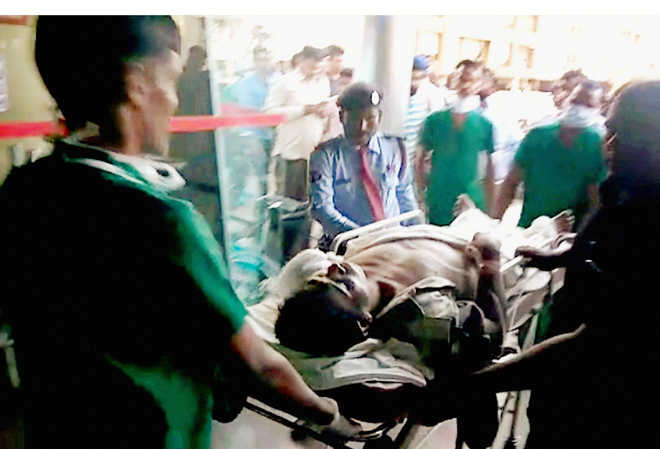
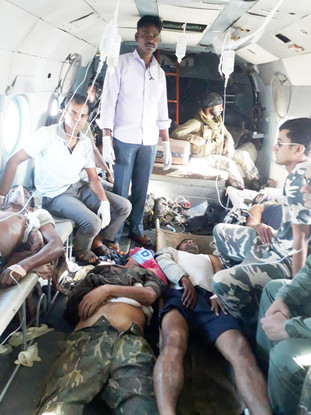


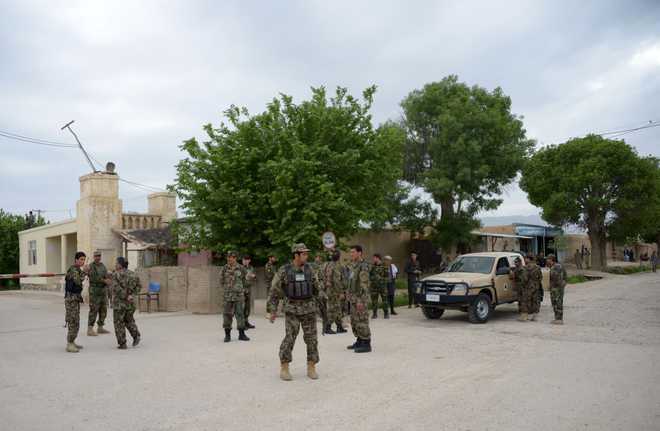
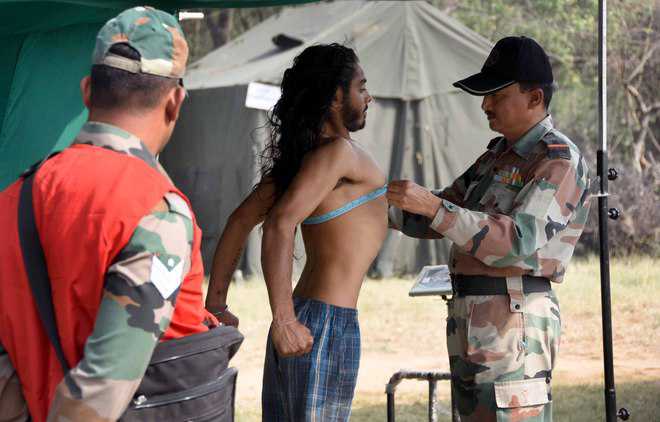
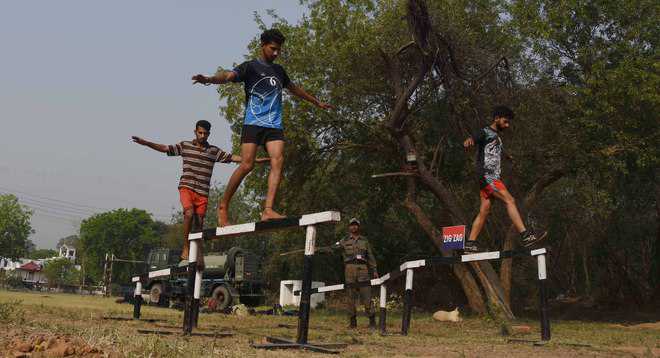
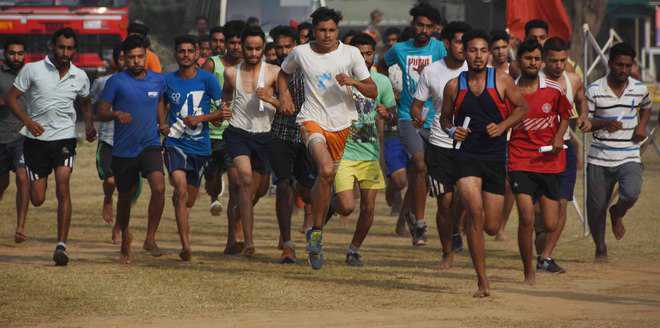
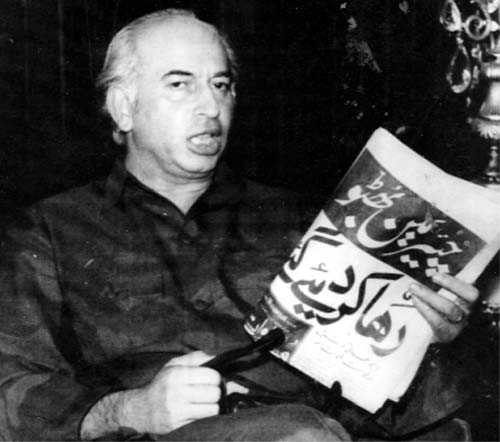


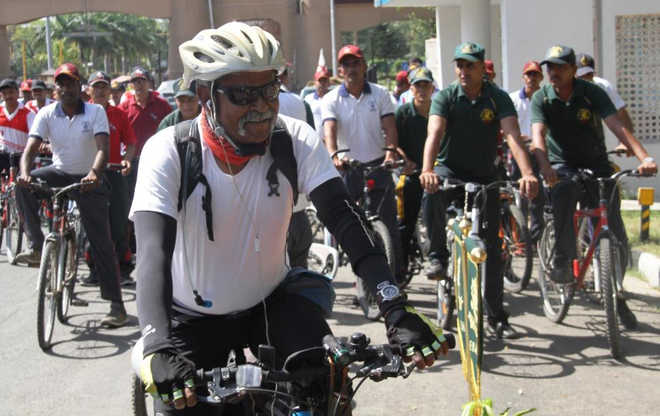
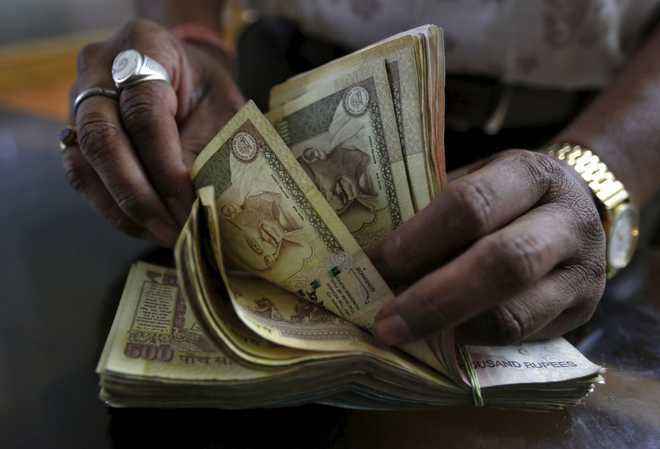

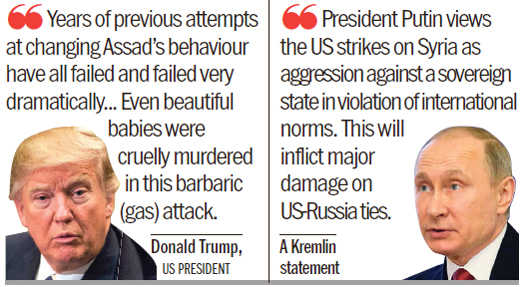
 ReUTers
ReUTers























































